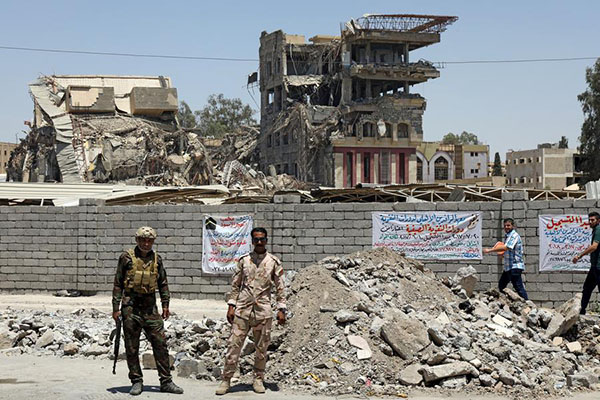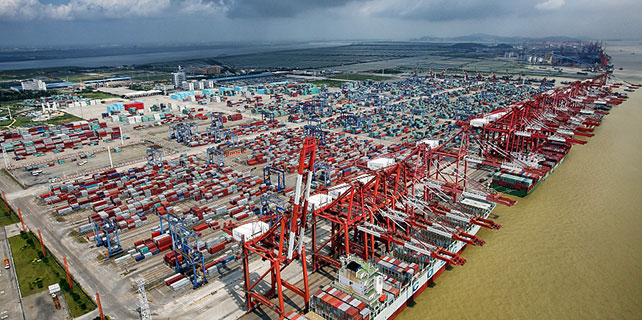Islamic State blows up historic Mosul mosque where it declared 'caliphate'
 |
|
Iraqi security Forces stand guard outside the University of Mosul in East Mosul, Iraq June 21, 2017, as government forces continue an offensive to dislodge Islamic State from the Western side of the city. [Photo/Agencies] |
MINARET WAS VULNERABLE
Iraqi officials had privately expressed the hope that the mosque could be captured in time for Eid al-Fitr, the festival marking the end of Ramadan, the Muslim fasting month. The first day of the Eid falls this year on June 25 or 26 in Iraq.
"The battle for the liberation of Mosul is not yet complete, and we remain focused on supporting the Iraqi Security Forces with that objective in mind," said Martin.
The fall of Mosul would, in effect, mark the end of the Iraqi half of the "caliphate" even though Islamic State would continue to control territory west and south of the city, the largest they held sway over in both Iraq and Syria.
Baghdadi has left the fighting in Mosul to local commanders and is believed to be hiding in the border area between Iraq and Syria, according to US and Iraqi military sources.
The mosque is named after Nuruddin al-Zanki, a noble who fought the early crusaders from a fiefdom that covered territory in modern-day Turkey, Syria and Iraq. The mosque was built in 1172-73, shortly before his death, and housed an Islamic school.
By the time renowned medieval traveler Ibn Battuta visited two centuries later, the minaret was already leaning. Its tilt gave the landmark its popular name: the hunchback.
It was built with seven bands of decorative brickwork in complex geometric patterns ascending in levels towards the top in designs also found in Persia and Central Asia.
Nabeel Nouriddin, a historian and archaeologist specialising in Mosul and its Nineveh region, said the minaret has not been renovated since 1970, making it particularly vulnerable to blasts even if it was not directly hit.
The Mosque's destruction occurred during the holiest period of the Islamic holy month of Ramadan, its final 10 days. The night of Laylat al-Qadr falls during this period, marking when Muslims believe the Quran was revealed to prophet Mohammed.
Reuters






















